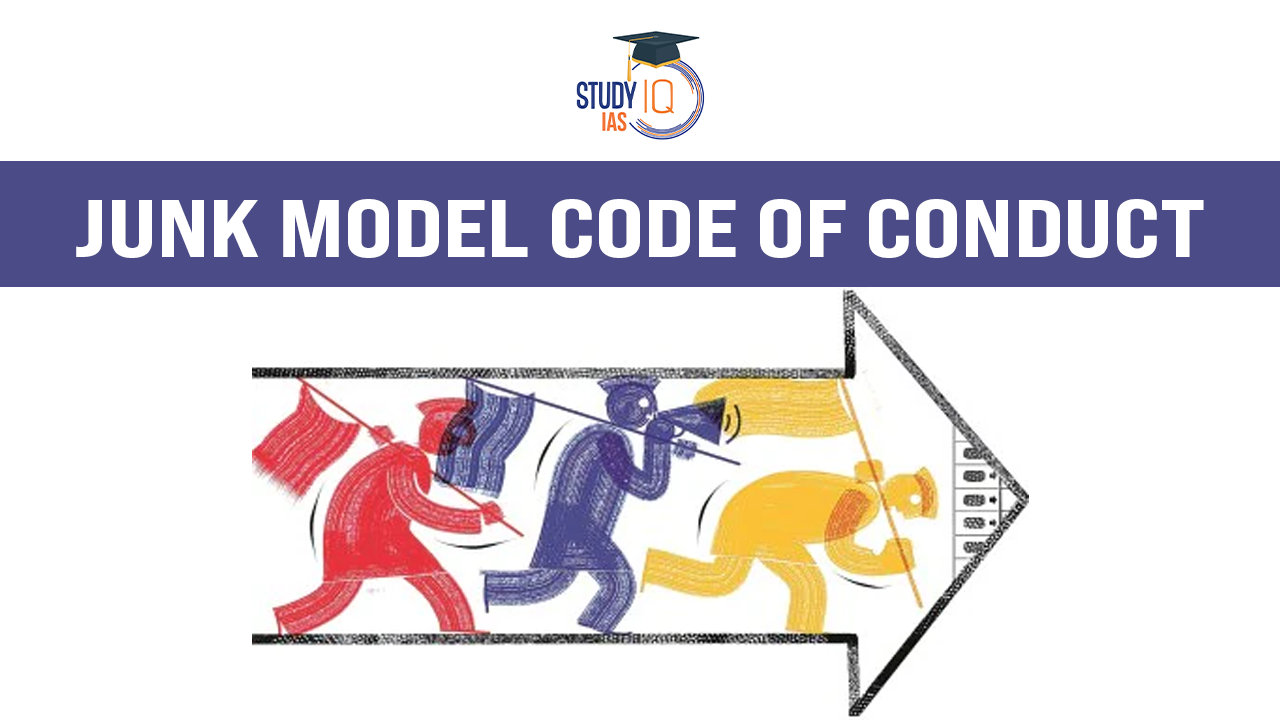Table of Contents
The argument for scrapping or “junking” the Model Code of Conduct (MCC) in India has recently gained attention, especially as its effectiveness is questioned. Originally designed to ensure fair, unbiased elections, the MCC has faced criticism for its perceived inefficacy, selective enforcement, and unintended consequences for governance. Here’s an in-depth look at why some experts believe it’s time to reconsider the MCC, along with a discussion of alternative measures.
What is the Model Code of Conduct (MCC)?
The MCC is a set of guidelines and ethical practices issued by the Election Commission of India (ECI) to political parties and candidates during elections. It aims to:
- Ensure fairness and equal opportunities for all candidates.
- Prevent parties from using divisive, inflammatory, or manipulative tactics.
- Maintain the neutrality of government machinery and public resources.
Why Critics Suggest Scrapping the MCC
Some recent critiques suggest that the MCC has become obsolete and ineffective. Key criticisms include:
- Lack of Enforceability
The MCC is often viewed as a “moral guideline” rather than a legally binding code. This means that while political leaders may openly violate MCC guidelines, they rarely face severe consequences, diminishing its deterrent power. For example, controversial statements by politicians often go unchecked, as the MCC lacks strong enforcement mechanisms. - Selective Enforcement by the Election Commission
There have been cases where the ECI’s enforcement of the MCC appears inconsistent, raising questions about impartiality. Critics argue that certain parties and candidates face stricter scrutiny, while others are given leniency. This selective enforcement erodes public trust in the ECI’s neutrality and effectiveness. - Ineffectiveness in Preventing Malpractices
Instances of voter bribery, manipulation of media, and misuse of public funds continue despite MCC guidelines. For example, government schemes launched just before elections can appear as attempts to influence voter opinions. The MCC, as a voluntary code, is unable to address these issues effectively. - Disruption of Governance
The MCC’s restrictions during elections often lead to pauses in governance activities, as officials delay important announcements and project implementations. This “freeze” on governance can harm development work and lead to delays in policy execution, affecting public welfare.
Original Purpose of the MCC
The MCC was introduced in India in the 1960s to establish standards for ethical campaigning, ensure a level playing field, and prevent the ruling party from unfairly using state resources during elections. Its main goals were to:
- Foster healthy competition among political parties.
- Promote respectful and civil campaigning.
- Provide a quick, informal mechanism for addressing electoral grievances.
While the MCC has achieved these aims in part, the evolving political landscape has exposed its limitations.
Arguments for Reform or Replacement
Critics suggest that the MCC is no longer suitable for modern elections, and propose alternative measures to address its limitations:
- Scrap and Strengthen Legal Frameworks
Some argue for the MCC to be replaced by a robust legal framework that includes enforceable provisions. By focusing on existing laws, such as the Representation of the People Act, 1951, which already covers many electoral malpractices, a more comprehensive and enforceable approach could replace the MCC. - Empower the Election Commission
Rather than relying on the MCC, the ECI could be given stronger powers under Article 324 of the Constitution to act against electoral misconduct. This would involve enforcing stricter penalties for violations and ensuring consistent application of laws. - Reinstate Governance Functions During Elections
To avoid governance disruptions, reforms could allow governance activities to continue during elections, especially in areas unrelated to the election process. This would ensure that the MCC does not halt important public projects or policy implementations. - Establish a Legal Status for MCC
Alternatively, giving the MCC a statutory or legal status could empower the ECI to take strict action against violators, ensuring it is taken seriously by political parties and candidates.
Conclusion
While the Model Code of Conduct was instrumental in establishing ethical campaign practices, it may have outlived its utility in its current form. Strengthening the ECI’s enforcement capabilities, empowering existing laws, and reducing governance disruptions could create a more effective system for ensuring fair elections. Replacing the MCC with a legally enforceable framework could mark a new era for India’s democratic process, aligning electoral conduct standards with contemporary political challenges.


 Transforming a Waste-Ridden Urban India:...
Transforming a Waste-Ridden Urban India:...
 Carbon Border Adjustment Tax (CBAM): Mea...
Carbon Border Adjustment Tax (CBAM): Mea...
 RBI Financial Stability Report 2025: Eco...
RBI Financial Stability Report 2025: Eco...

























